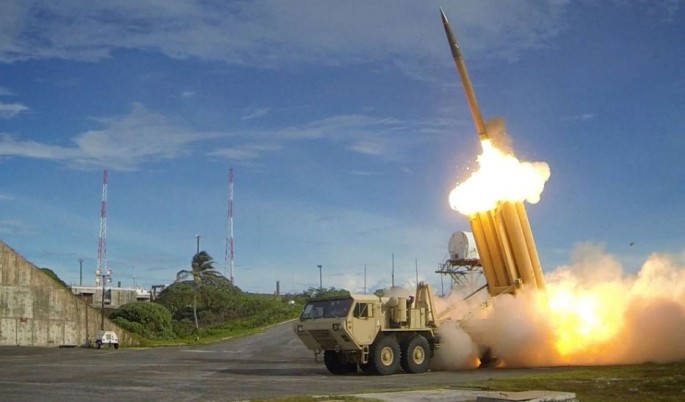The revelation North Korea will conduct a sixth underground nuclear weapon test within the year, and probably as early as next month, is another huge blow to China's increasingly discredited attempts to justify its opposition to South Korea deploying an American anti-ballistic missile to defend its territory.
South Korea believes the forthcoming test might exceed the 10 megaton yield of the weapon detonated last Sept.10 at the north's Punggye-ri underground test site. Following the blast, North Korea's state-run media said the test will enable the country to produce "a variety of smaller, lighter and diversified nuclear warheads of higher strike power."
That latest nuclear test and North Korea's simultaneous launch of three ballistic missiles as China was hosting the G20 Summit is a huge strategic setback for China. These events severely weaken China's argument against the United States stationing anti-ballistic missiles to defend South Korea from North Korean missiles armed with nuclear warheads.
South Korea has no indigenous anti-ballistic missile capable of defeating North Korea's short- to medium-range ballistic missiles. It has had to ask the U.S. to deploy its Terminal High Altitude Terminal Defense (THAAD) system in its defense.
Equally galling for China is that the fifth nuclear blast and the trio of missile launches confirms China has lost whatever influence it has on North Korea's leader, the volatile Kim Jong-un, who seems determined to chart his own course without regard for China's interests.
The nuclear test of Sept. 10 drew condemnation from the UN and world leaders, including China.
China and its ally, Russia, together oppose the deployment of the THAAD because the system's powerful search radars can look thousands of kilometers inside China, compromising China's security. China fears THAAD will enable the Americans to increase surveillance of eastern and central China where most of its armed forces is located.
China also fears THAAD might be used to destroy its land-based anti-ship ballistic missiles such as the "carrier killer" DF-31 that are the backbone of it anti-access/anti-denial (A2/AD) strategy to deny the U.S. Navy access to waters off its eastern coast.
North Korea's repeated missile and nuclear tests have seriously weakened China's argument against THAAD. But of more strategic import, North Korea's repeated provocations will most likely accelerate the deployment of THAAD to two sites in South Korea.
There are indications the South Korean government might request more THAAD batteries be deployed to its shores. The first THAAD battery will become operational on an American air base by the end of this year.
"There were voices against its deployment within South Korea but the test will further provoke South Korea's conservative camp in pushing forward the date," said Cui Shiying of the Chinese Academy of Social Sciences.



























